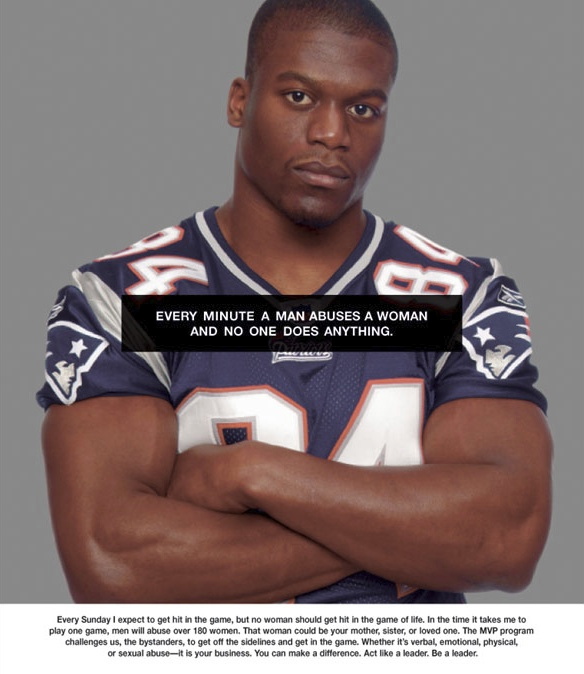Mentors in Violence Prevention: Gender Violence Prevention Education & Training

Mentors in Violence Prevention is a leadership program that motivates both men and women to play a central role in solving problems that historically have been considered women’s issues: rape, battery, and sexual harassment. The MVP program employs a train the trainer and peer leadership approach to bystander intervention. A group of staff trainers facilitate discussion sessions for student participants, who go on to facilitate co- educational sessions for their peers. Topics include: how to respond to actual or potential abuse or harassment, how to confront peers about sexist behaviors, how to support peers who are the victim of gender violence, and how to create a safe, non-violent school environment.
Goal: Initially designed to engage male athletes, the MVP model emphasizes the role of students as empowered bystanders who can confront peers on abusive or harassing behavior, as well as provide support to victims of such behavior. The goal of the MVP program is to change behaviors and actually prevent violent incidents before they occur. The MVP program has four primary aims:
- To raise awareness of men’s verbal, emotional, physical, and sexual abuse of women
- To challenge mainstream messages about gender, sex, and violence
- To create a safe environment for dialogue between men and women, so that students may share their opinions and experiences
- To inspire leadership by empowering participants with concrete options to effect change in their respective communities and their own lives.
MVP utilizes a creative bystander approach to gender violence and bullying prevention. It focuses on young men not as perpetrators or potential perpetrators, but as empowered bystanders who can confront abusive peers – and support abused ones. It focuses on young women not as victims or potential targets of harassment, rape and abuse, but as empowered bystanders who can support abused peers - and confront abusive ones.
Workshop approaches employ varied learning methods with lessons touching upon types of abuse, alcohol and consent, harassment, and homophobia. MVP sessions utilize examples relevant to students’ daily lives to encourage interactive discussion in both single-sex and mixed gender groups. Students are supplied with a training manual—the MVP Playbook—which includes realistic scenarios designed to engage students in discussion and challenges them to consider concrete options for intervening before, after, or during the event.
Impact: Along with anecdotal and qualitative evidence for its effectiveness, MVP has been evaluated in high schools, college campuses and the United States Marine Corps. The high school/middle school version is currently being systematically evaluated in several schools. The standard MVP evaluation is a pre and post-test that measures attitudes and behaviors that relate to the role of bystanders in creating and sustaining peer culture climates that discourage abusive behavior and reward pro-social, proactive responses to situations of harm or potential harm. See a sample MVP evaluation. Access an evaluation report of the replication of the program with college fraternity and sorority members at Syracuse University, supported by the US Department of Education by Center for Court Innovation.
The MVP Model can be implemented in numerous educational settings. The MVP playbooks and trainer's guides are customizable for diverse populations of students. Currently, materials are available for high school boys and girls. In some cases, these materials can be used with middle-school students as well. (MVP classes and workshops with middle school students may be conducted by MVP mentors who are high school students).
Utilizing MVP successfully to change the climate of a school requires school readiness and a commitment by school leadership to implement the program in an ongoing way. In order to get early buy-in it is recommended that athletic personnel, administrators, and teachers be invited to participate in an MVP training of trainers early in the process in order to cultivate leadership commitment to gender violence and bullying prevention.
Training: MVP trainers at Northeastern University or in Jackson Katz's Long Beach, CA-based organization MVP Strategies conduct intensive, on-site two-day trainings of trainers with high school personnel, including teachers, coaches, counselors, administrators, public safety staff, parents, and others. The highly interactive trainings introduce the participants to the MVP philosophy and teaching/mentoring methods.
Capacity: School readiness and leadership commitment should be assessed before program implementation.
Cost: Sets of MVP playbooks and trainer's guides are currently available for purchase on a sample basis. Prices for items varies. See ordering information or contact MVP for large quantities of playbooks or trainers guides.

